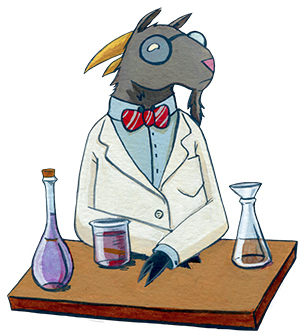Literary Merit and Harry Potter
From Londonhua WIKI
Literary Merit and Harry Potter
{{Infobox |title = Literary Merit and Harry Potter |bodystyle = width:25em |image = [[File:J.K. Rowling quote.JPG|x450px|alt=J.K. Rowling quote] |caption = Photo Attributed to Dave Catchpole via flickr }}
It is advised that you click Actions>View Source for this document, and copy the entire contents. Then, create a new page on this site using the title of your project as the page name. Past the copied contents from this template page into your newly created page. Then, rename the "Title of this Milestone" in the top-level heading and infobox above to the name of your project or something appropriate related to your milestone. Change the User "credit" name to link to your profile page. Upload an image of your own that captures the essence of this milestone, then replace the "ProjectPicture.jpg" above with the new image name. Replace "Your Project Page Picture Caption" above with your first and last name. Delete this whole paragraph beneath the Project Title and credit up til but not including the Table of Contents tag __TOC__.
Contents
Abstract
The paragraph should give a three to five sentence abstract about your entire London HUA experience including 1) a summary of the aims of your project, 2) your prior experience with humanities and arts courses and disciplines, and 3) your major takeaways from the experience. This can and should be very similar to the paragraph you use to summarize this milestone on your Profile Page. It should contain your main Objective, so be sure to clearly state a one-sentence statement that summarizes your main objective for this milestone such as "a comparison of the text of Medieval English choral music to that of the Baroque" or it may be a question such as "to what extent did religion influence Christopher Wren's sense of design?"
Introduction
I suggest you save this section for last. Describe the essence of this project. Cover what the project is and who cares in the first two sentences. Then cover what others have done like it, how your project is different. Discuss the extent to which your strategy for completing this project was new to you, or an extension of previous HUA experiences.
As you continue to think about your project milestones, reread the "Goals" narrative on defining project milestones from the HU2900 syllabus. Remember: the idea is to have equip your milestone with a really solid background and then some sort of "thing that you do". You'll need to add in some narrative to describe why you did the "thing that you did", which you'd probably want to do anyway. You can make it easy for your advisors to give you a high grade by ensuring that your project milestone work reflects careful, considerate, and comprehensive thought and effort in terms of your background review, and insightful, cumulative, and methodical approaches toward the creative components of your project milestone deliverables.
Section 1: Background
Literary Merit
Most people have an understanding of what literary merit means; However, there is no solid definition of what gives a work literary merit. Part of what make literary merit so hard to understand is that it can not be judged on a absolute scale. A work can relatively have more merit than another, however there is no standard on judging merit between books. This means that how someone would rank literary merit depends on their background and what they personally deem important. (Source 4)
There is still some consensus that certain works, like Shakespeare's plays, do have a high amount of literary merit while others, such as something written by a third grader, do not. Three of the factors that effect how people perceive a work's literary merit are how long it's been discussed, how popular it is, and its target audience. Time is one of the most significant factors into determining literary merit. Any work that can last over an extended period of time and still be discussed has its quality slowly proven.(sources 4,6,7) Having a work last over time means that it did not become discussed solely due to a particular time periods tastes and filters out judgement that do not have to do with the works quality. (source 7)
Despite the modern day definition of popular being a positive attribute, it carries a negative connotation when it is applied to a literary work. When a work is considered to have literary merit it is also considered to be more high class. Since popular was originally used to describe common people as opposed to the aristocracy, it is considered to be of a low class and therefore cannot posses enough artistic credibility to have literary merit. (source 5)
Like popularity, target audience of a work can have a perceived effect on how much artistic credibility has independently from the quality of the work. This is most apparent in children's literature. modern day society tends to view children as inept and shallow, causing any books written for children to not be taken seriously.(source 1). Additionally, many children's book series tend to be mass produced, such as Nancy Drew, which also contributes to the sentiment of children's literature lacking in depth and artistic credibility. (source 5).
The academic canon is a collection of literature that have enough value to be taught in schools. There is a lot of controversy regarding canon and what should be included. Some literary specialist feel that the canon is to narrow and exclusive well others fear that the criteria are too broad. Those who support opening the canon to new works feel that having the canon devalues works not included and that the current canon does not include enough diversity and should include more minority authors, such as women and people of different ethnicities. (sources 6,7) Those against opening the canon feel that bring in new works would devalue the ones currently included and that the current criteria of including works that are held in discussion over a long period of time and are held in esteem is open enough despite the current lack of diversity.(source 7)
Harry Potter
There are two reasons that Harry Potter is not considered to have literary merit: its target audience and its immediate popularity. Harry Potter was written for children, which means that scholars do not take it as seriously as other works. (source 5) Additionally the fact that a lot of young children do read Harry Potter makes it unappealing towards older audiences.(source 3) Overall it is considered to be to childish to have literary merit.(source 1). It's immediate popularity also contributed to its apparent lack of literary merit. (sources 5,1) Neither target audience nor popularity truly has an effect on a works literary merit. J.R.R. Tolkien and Dickens both wrote for children and their work have lasted and are considered to have literary merit despite their target audience. The Lord of the Rings was immediately popular like Harry Potter and still get attention from scholars and had merit. (source 1)
Harry Potter does have a lot of value in the themes it covers and what it teaches. Seeing Harry, a child like them, gives children a sense of power over their world increasing there confidence. Harry Potter is much larger than most children's books giving them a sense of accomplishment when they can finish it. (source 3) The characters are presented as humans who make mistakes making them easy for children and adults to relate to despite the fact that they can use magic. Children can learn morals by living vicariously through Harry while reading the book as he comes up with his own moral challenges. (Source 2) Even for older audiences the book has lessons about self reliance, perseverance, self discipline, reason, empathy, and accepting diversity. (Source 1) The themes about growing up, dealing with life's uncertainties and belonging to a collective desire resonate strongly with children.(Sources 2,3) The book is able to present topics like good verse evil in a way that children can understand the world is not black and white along with covering topics like personal and collective responsibility.(Source 1). Harry Potter teaches a lot of the same strength and perseverance as darker books such as Mans Search for Meaning but does so in a much gentler manner making it easier for someone with depression who might need those messages. (Source 2).
Section 2: Deliverable
In this section, provide your contribution, creative element, assessment, or observation with regard to your background research. This could be a new derivative work based on previous research, or some parallel to other events. In this section, describe the relationship between your background review and your deliverable; make the connection between the two clear.
Whats worth teaching
I honestly have no clue what I'm doing
Subsection 2
...and so on and so forth...
Gallery
Conclusion
In this section, provide a summary or recap of your work, as well as potential areas of further inquiry (for yourself, future students, or other researchers).
References
Add a references section; consult the Help page for details about inserting citations in this page.
Attribution of Work
For milestones completed collaboratively, add a section here detailing the division of labor and work completed as part of this milestone. All collaborators may link to this single milestone article instead of creating duplicate pages. This section is not necessary for milestones completed by a single individual.
External Links
If appropriate, add an external links section
Image Gallery
If appropriate, add an image gallery



